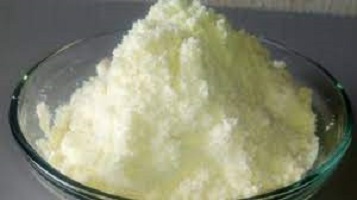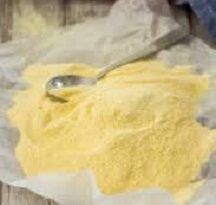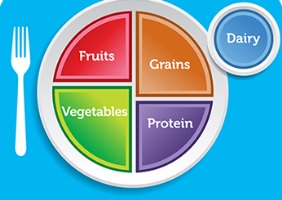Milk Powder: Uses, Nutrition, and Benefits
Milk Powder: Uses, Nutrition, and Benefits

Powdered milk, also known as milk powder, dried milk, or dry milk, is a dairy product that is created by drying milk.
One reason for drying milk is to preserve it; milk powder has a much longer shelf life than liquid milk and, due to its low moisture content, does not need to be refrigerated. Another reason for drying milk is to minimize its bulk for transportation efficiency. Dry whole milk, nonfat (skimmed) dry milk, dry buttermilk, dry whey products, and dry dairy blends are examples of powdered milk and dairy products.
Please Read >>>
- Reconstituting Powdered Milk: Powdered Milk Conversion to Liquid Milk
- What Is Evaporated Milk? How to Make Evaporated Milk
- Evaporated Milk Substitute: Best Alternatives for cooking/baking
Milk powders are abundant in soluble vitamins and minerals and contain all 21 normal amino acids, which are the building blocks of proteins.
Table of Contents
Nutritional Facts
According to USAID, the average levels of main nutrients in unreconstituted nonfat dry milk are (by weight) 36% protein, 52% carbohydrates (predominantly lactose), calcium 1.3%, potassium 1.8%.
Whole milk powder, on the other hand, contains on average 25-27% protein, 36-38% carbohydrates, 26-40% fat, and 5-7% ash (minerals).
Any recipe that calls for milk can be made with powdered milk that has been reconstituted to liquid form. For a variety of reasons, powdered milk is widely used in baking recipes.
Lactose and protein are both beneficial to fat-raising foods like doughnuts, therefore milk is an excellent supply of both.
The milk powder, without a doubt, adds taste to the dish. It can, however, aid in the development of deeper golden tops and more sensitive innards.
Milk Powder Benefits: The advantages of milk powder
Fresh milk has the same nutritional value as powdered milk. Protein, calcium, vitamin D, and vitamin A are all bone-building nutrients.
Powdered milk is a protein source that can be used to boost the protein and energy content of recipes (especially for people with health conditions that need extra protein).
Milk powder is made by evaporating milk until only the milk particles remain, which are then condensed and treated at precise temperatures.
It is ensured that the nutrients in the raw milk are not lost during the evaporation process. Protein, calcium, potassium, phosphorus, and other vitamins are all found in powdered milk, just as they are in raw milk.
Many people keep powdered milk in their bunkers because it lasts longer that way.
Milk also has the following health benefits:
Every cup of milk is high in protein, especially casein and whey protein. These milk proteins are referred to as ‘complete proteins.’
That is, they include all of the essential amino acids that your body requires to function properly.
Whey protein, one of the high-quality proteins found in milk, contains branched-chain amino acids, which aid in muscle growth and provide sufficient energy during exercise.
This reduces the likelihood of muscle wasting (or atrophy) due to a lack of physical activity as well as age-related muscle loss.
Milk is a suggested supplement for athletes, individuals who lead an active lifestyle, and the elderly because of its health benefits.
Milk can help athletes and physically active adults by promoting muscle healing as well as reducing muscular discomfort and injury.
It can also be used as a substitute for those who drink protein drinks before and after their workouts.
Alternatively, add it to your protein powder pancakes as an ingredient.
Increased muscular mass and improved physical movement, on the other hand, can help older persons.
It’s no coincidence that milk has long been connected with stronger, healthier bones. The calcium in milk meets the daily calcium requirements in appropriate proportions.
Calcium, in combination with the other minerals contained in milk (phosphorus, potassium, and protein), is essential for strong and healthy bones.
Milk is high in potassium, which helps to lower blood pressure. Milk consumption with a controlled potassium intake can lower the risk of cardiovascular disease.
Here are a few examples of plant-based milk powder substitutes:
- Almond milk
- Cashew milk
- Coconut milk
- Soy milk
- Hemp milk
- Oat milk
- Rice milk
Milk powder is your go-to beauty supplement if you have a rash or if your skin has lost its luster and natural bloom.
Milk powder, when combined with other natural substances, can work wonders for your skin, providing much-needed relief from a variety of skin disorders and irritations.
Here are a few face masks you can make with milk powder to make your skin look naturally radiant and lovely.
- Exfoliating mask with the milk powder, flour, and orange
Exfoliation is a crucial aspect of our skincare routine, as we all know. These three substances work together to act as a natural exfoliant for your skin, restoring its smoothness and freshness.
To make the face pack, you’ll need the following ingredients: milk powder, gram flour, and orange juice.
After the paste has been prepared, apply it to the face and neck. Allow time for it to dry. Wash it off with cold water after 15 minutes and notice the improvement right away.
- Lemon, yogurt, and milk powder
The combination of milk powder, yogurt, and lemon helps to remove dark spots and pigmentation from the skin while also restoring the skin’s natural radiance and freshness.
Two teaspoons of yogurt, one teaspoon of milk powder, and half a teaspoon of lemon juice are required to make the paste.
Apply the paste to your skin after thoroughly mixing it all together and producing a paste. Leave it on for 20 minutes. Then gently wash it with water.
- Multani mitti and milk powder
Oily skin collects a lot of dust and other toxic elements, making it more susceptible to acne.
It depletes our skin’s radiance and makes us appear drab and lifeless. You may build a mask with milk powder and multani mitti that will help you get rid of your oily skin and restore the natural glow of your skin.
To eliminate extra oil from the face, simply combine the two ingredients and add some water.
After a few minutes, remove the pack and wash it off. After a few days of using this procedure, you will notice a significant difference in your skin.
FAQ
Is powdered milk healthy?
Milk extracted from powder has the same nutritional value as fresh milk.
Moreover, its protein, calcium, vitamin D, and vitamin A content are essential for maintaining healthy bones.
With powdered milk in recipes, there is increased protein and energy (especially in people with dietary needs).
Is milk powder the same as powdered milk?
Powdered milk, also known as milk powder, dried milk, or dry milk, is a dairy product that is created by drying milk.
One reason for drying milk is to preserve it; milk powder has a much longer shelf life than liquid milk and, due to its low moisture content, does not need to be refrigerated.
What is milk powder used for?
This powder can be used in a variety of dishes, including oatmeal and other porridges, soups, tea, gravies, smoothies, milkshakes, and puddings, in addition to standing in for milk.
Which is healthier milk or milk powder?
When compared to powdered milk, fresh milk has a higher nutritious value. B-5 and B-12 vitamins are more abundant in fresh or normal milk.
These vitamins aid in the maintenance of your nervous system’s health. In comparison to powdered milk, fresh milk has more selenium and phosphorus.
Can I drink powdered milk every day?
This could result in nutritional insufficiency and jeopardize the nutritional efficacy of milk in powder form.
How do I substitute milk for powdered milk?
For every 1/4 cup (32 grams) of milk powder, substitute 1 cup (240 mL) of regular milk.
You’ll also want to reduce the original amount of water called for in the recipe by 1 cup (240 mL). Whole fat, reduced fat, and nonfat milk can all be used in place of the powder.
Is milk powder good for the skin?
Lactic acid is abundant in it, which naturally cleans and shines the skin.
Aside from skin lightening, the concentration of vitamins and minerals in the powder makes it an excellent skin component.
This has a purifying effect on the skin. “It can also remove undesired pollutants like blackheads and whiteheads from the skin,” he adds.
Can milk powder make you fat?
Is it true that drinking milk makes you acquire weight? This question has a clear answer: NO.
Milk will not make you gain weight; in fact, it will help you shed weight. Milk is nutritious and a good source of high-quality protein, which is essential for muscle growth and development.
Side Effects of Milk
Lactose intolerance affects some people who have special dietary demands and are unable to digest milk.
Some people avoid drinking milk owing to health concerns, dietary constraints, or other factors.
The good news is that low lactose powdered milk formulas and non-dairy milk substitutes are now available to meet their nutritional demands while still delivering the same health advantages.


